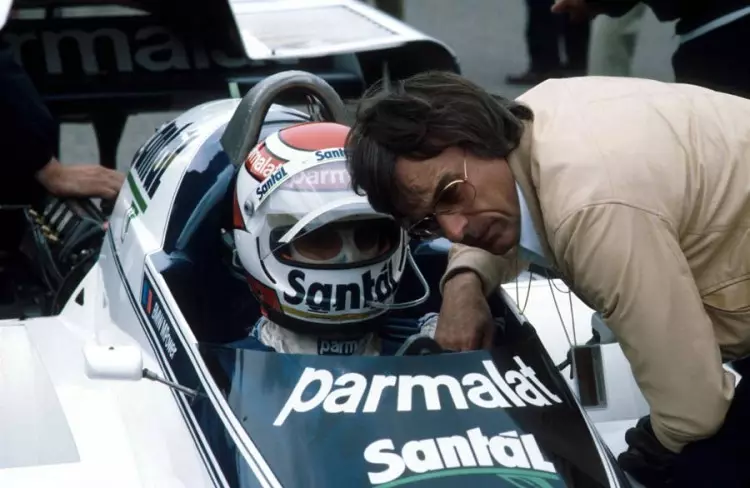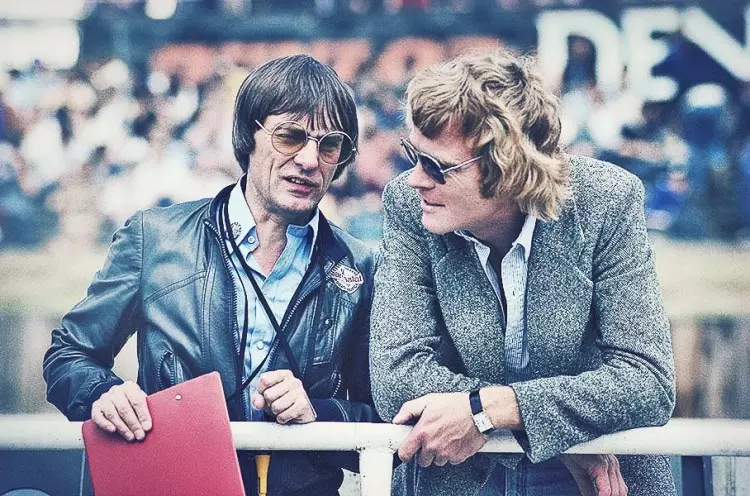A passion for motorsport and a knack for business led Bernie Ecclestone to the lead in the premier motorsport race. He knows the life of the "Formula 1 boss".
Bernard Charles “Bernie” Ecclestone was born on October 8, 1930 in Suffolk, England, into a poor family. Son of a nanny and a fisherman, he is now the «boss of Formula 1». He is the President and CEO of Formula One Management (FOM) and Formula One Administration (FOA).
"Bernie"'s first years of life
From an early age, Bernie Ecclestone showed a strong personality and a flair for business. As a child, he used to buy candy and then sell it to colleagues for twice the price, revealing his entrepreneurial mindset. As he was smaller than his peers, it is said that Bernie paid his older peers in exchange for protection at recess. And this one?...
Already in his teens, the Brit gained a taste for motorcycling, and at just 16 years of age, he joined Fred Compton to found Compton & Ecclestone, a company that sold motorcycle parts.
The first experience in a competition event – single-seaters – took place in 1949 in Formula 3, but after several accidents at the local Brands Hatch circuit, Bernie Ecclestone lost interest in competition and decided to focus more on the business part of racing.
The first big deals
Over the years, the success of the business grew – Ecclestone also started buying and selling vehicles and investing in real estate – and in 1957 Ecclestone bought the Formula 1 Connaught Engineering team.

SEE ALSO: Maria Teresa de Filippis: the first Formula 1 driver
Later that year, Ecclestone became manager of friend and driver Stuart Lewis-Evans, having attempted a return to the track at the Monaco Grand Prix in 1958, without success. At the Moroccan Grand Prix, Lewis-Evans had a fatal accident that left Ecclestone badly affected; two years later, driver Jochen Rindt (who at the time had hired Ecclestone as his manager) died on the historic Monza circuit, prompting the Briton to definitively end his career as a driver.
The definitive entry into the world of Formula 1
In 1972, Ecclestone bought Brabham, a British team that would be very successful thanks to the drivers Niki Lauda and Nelson Piquet (pictured above). Bernie Ecclestone thus began to cement his position in the premier race of motorsport. Two years later, the Brit founded the Formula 1 Builders Association (FOCA), with Colin Chapman (founder of Lotus) and friend and lawyer Max Mosely (pictured below), among others.
Through FOCA, Ecclestone achieved in 1978 what is perhaps his greatest contribution to the evolution of Formula 1. The British businessman brought together all the teams and reached an agreement to sell the television rights. Revenue was distributed among the teams (47%), the International Automobile Federation (30%) and the newly created Formula One Promotions and Administration (23%). The contract – known as the “Concorde Agreement” – has been renegotiated over the years, always with Ecclestone as the main responsible.

NOT TO BE MISSED: Formula 1 on a public road? In Gumball 3000 anything goes
Since then, Bernie Ecclestone has been one of the great driving forces of Formula 1 and largely responsible for taking advantage of the sport's full potential, always with a unique and very unique vision of the sport – sometimes without being able to avoid controversies. Currently, the entrepreneur is the leader of the Formula 1 Group and one of the richest entrepreneurs in Great Britain.In between, there have been many controversies surrounding his choices. Naturally focused on the business and results, he had no problem “pulling the strings” to divert the competition from the path. For example, in 1992, he managed to promote with the FIA a change in the World Cup regulations to castrate discipline. Result? The Endurance World Cup is over, a test that he was increasingly doing about Formula 1.
The stories follow each other and the controversies too – their opposition to women in Formula 1 and their resistance to social media is public. Now 85 years old, one of the biggest current issues in the discipline is his succession. Whoever his successor is, Ecclestone has already secured a prominent place in Formula 1 history – for all the reasons and more (read good and bad).
